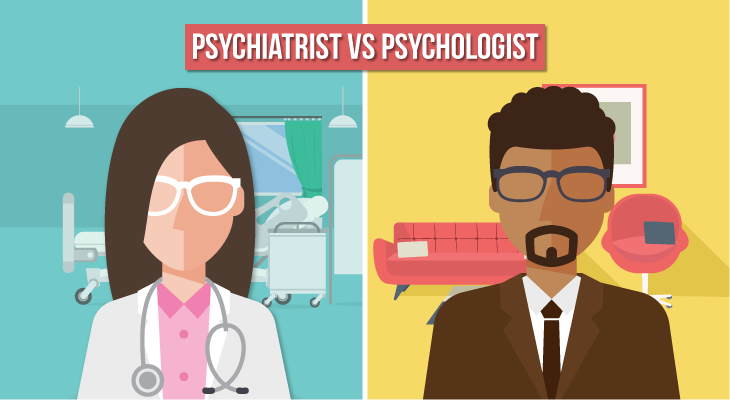The Role of Psychiatrists in Unlocking the Mind’s Potential

In a world increasingly focused on physical health and external achievements, the power of the mind often goes overlooked. Yet, behind every remarkable breakthrough or extraordinary achievement lies a mind that has been harnessed to its fullest potential. This is where psychiatrists step in, armed with their deep understanding of the human psyche and an arsenal of therapeutic techniques. Online psychiatrists are revolutionizing the field of mental health by offering convenient and accessible services to individuals in need. With the rise of telehealth platforms and video conferencing technology, patients can now seek therapy and counseling from the comfort of their own homes. This not only eliminates barriers such as transportation and scheduling conflicts but also provides a safe space for those who may feel anxious or reluctant about face-to-face interactions.With their expertise in unraveling the complexities of mental health, these dedicated professionals play a crucial role in unlocking the mind’s potential and helping individuals reach new heights of personal growth and fulfillment. In this article, we delve into the multifaceted role that psychiatrists play in harnessing the untapped powers within our minds, exploring how they guide us towards self-discovery, resilience, and ultimately unleashing our true potentials.
Table of Contents
The Importance of Mental Health Care
Mental health care is often overlooked, even though it is just as important as physical health care. Our minds are complex and powerful tools that need to be taken care of, yet society still stigmatizes mental illnesses and discourages seeking help. However, with the rise in stress levels and anxiety disorders among young people, the importance of mental health care can no longer be ignored.
One of the key reasons why mental health care is so crucial is its impact on overall well-being. When our minds are healthy, we are better able to cope with life’s challenges, form meaningful relationships, and achieve success in our endeavors. Without proper mental health care, individuals may suffer from conditions such as depression or anxiety, which can significantly affect their daily lives.
The Role of Psychiatrists in Diagnosis
Psychiatrists play a crucial role in the process of diagnosing mental health conditions and disorders. Their expertise allows them to differentiate between normal human experiences and symptoms that indicate the presence of a psychiatric disorder. Through extensive training, psychiatrists gain a deep understanding of various psychological conditions, enabling them to accurately assess individuals and provide appropriate treatment plans.
One unique aspect of the psychiatrist’s role in diagnosis is their ability to use both objective assessment tools and subjective clinical judgment. While objective tests like questionnaires or brain scans can provide valuable data, the psychiatrist’s experience and intuition are equally important. As individuals often present with complex symptoms that may not fit neatly into one diagnostic category, psychiatrists must rely on their clinical expertise to carefully evaluate each case. This personalized approach ensures that patients receive accurate diagnoses leading to more effective treatment options tailored to their specific needs.
Therapeutic Techniques for Unlocking Potential
One of the therapeutic techniques used in unlocking potential is cognitive-behavioral therapy (CBT). This technique involves helping individuals identify and change negative thought patterns and behaviors that may be hindering their progress. By challenging distorted thinking and replacing it with more realistic and positive thoughts, CBT can help individuals develop healthier coping mechanisms, improve self-esteem, and ultimately unlock their true potential.
Another approach used by psychiatrists to unlock potential is psychodynamic therapy. This form of therapy focuses on exploring unresolved conflicts from the past that may be influencing an individual’s current behavior. By delving deep into the unconscious mind, psychodynamic therapy aims to bring these conflicts to light and provide a fresh perspective. Through gaining insight into past experiences and patterns of behavior, individuals can free themselves from psychological barriers that impede personal growth and fulfillment.
Collaborating with Patients for Personal Growth
Collaborating with patients for personal growth is a crucial aspect of the psychiatrist’s role in unlocking the mind’s potential. Unlike traditional models that position psychiatrists as authoritative figures, this collaborative approach recognizes that patients are experts on their own experiences and empowers them to take an active role in their treatment journey.
By working together, both the psychiatrist and patient can uncover new insights into their mental health and develop personalized strategies for growth. This collaboration fosters a sense of ownership and agency, allowing the patient to feel heard and understood. It also creates space for exploring alternative perspectives, challenging established beliefs, and co-creating innovative solutions. Moreover, involving patients in decision-making processes allows them to gain a deeper understanding of their own strengths, weaknesses, triggers, and coping mechanisms throughout the therapy journey. This self-discovery not only promotes personal growth but also enhances resilience as patients acquire the tools necessary to navigate future challenges independently. Tri Cities Psychiatry offers a unique and comprehensive approach to mental health care, catering to the diverse needs of individuals in the area. With a team of experienced psychiatrists, they provide expert diagnosis, treatment, and therapy for various mental disorders. What sets them apart is their emphasis on personalized care and holistic healing.
The Future of Psychiatry and Mind Unlocking
In the future of psychiatry, there is an evolving understanding that goes beyond traditional diagnoses and treatments. Psychiatrists are now exploring various techniques to unlock the mind’s potential, allowing individuals to tap into their own strengths and capabilities. This shift focuses on empowering patients and helping them achieve optimal mental health rather than simply managing symptoms.
One avenue being explored in this realm is mindfulness-based therapies. These interventions integrate ancient contemplative practices with modern psychology, offering patients tools to cultivate awareness and compassion for themselves and others. By training the mind in this way, individuals can become better equipped at managing stress, anxiety, depression, and other mental health challenges. This approach not only provides immediate relief from symptoms but also promotes long-term well-being by creating a resilient mindset capable of navigating life’s inevitable ups and downs.
Conclusion: Unlocking limitless possibilities through psychiatric care.
In conclusion, psychiatric care has the potential to unlock limitless possibilities within the human mind. By addressing and treating mental health conditions, psychiatrists can help individuals tap into their innate creativity, problem-solving abilities, and emotional resilience. Furthermore, through various therapeutic techniques such as cognitive-behavioral therapy and medication management, psychiatrists can assist in rewiring neural pathways that have been negatively impacted by trauma or mental illness.
Moreover, it is important to recognize that psychiatric care goes beyond simply managing symptoms or providing temporary relief. It offers a unique opportunity for individuals to explore their true potential and develop a deep understanding of themselves. Through a collaborative relationship with a psychiatrist, individuals can gain insight into their thoughts and emotions, uncovering underlying patterns or beliefs that may be holding them back from reaching their full potential.




